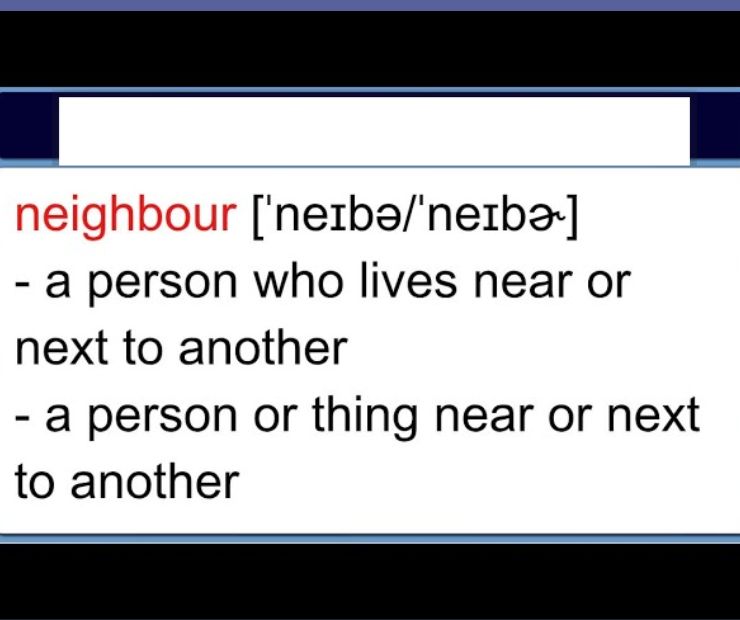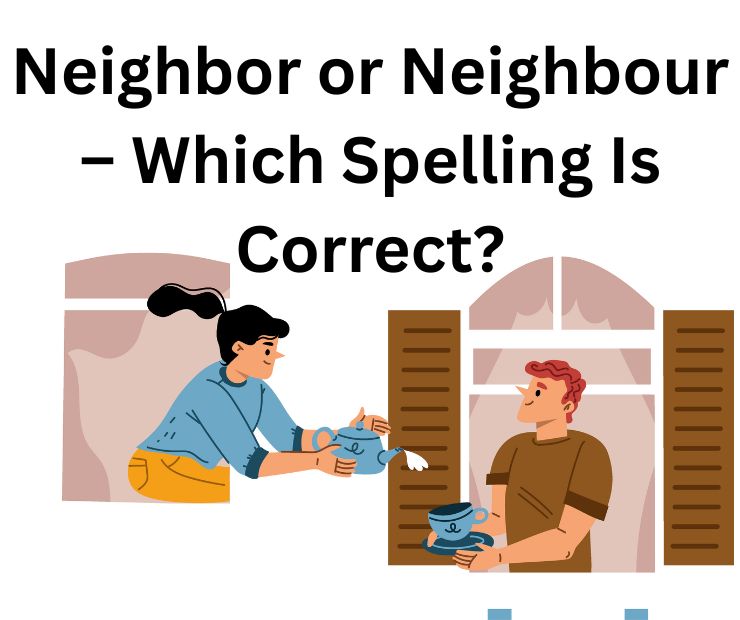Did you know that the way you spell “neighbors” can reveal something about where you live? In this article, we dive into the intriguing debate between “neighbor” and “neighbour,” exploring the nuances of these variations. Understanding these spellings is not just about grammar; it taps into cultural identity and language evolution. Join us to discover how do you spell neighbors correctly in different contexts and what it means for your communication.
Meaning of Neighbour or Neighbor: What’s the Difference?
The choice between “neighbor” and “neighbour” often sparks lively debates in linguistics and among grammar enthusiasts, primarily hinging on regional variations. In the United States, “neighbor” reigns as the preferred spelling, symbolizing a distinctly American English style.

Meanwhile, “neighbour” is cherished in British English and many Commonwealth countries, encapsulating a sense of tradition and historical roots. This divergence not only reflects geographic distinctions but also illustrates the dynamic evolution of the English language.
How Do You Spell Neighbor?
The spelling of “neighbor” often sparks curiosity beyond its straightforward letters. It serves as a reminder of the cultural nuances that shape our language. In American English, “neighbor” reflects a straightforward phonetic approach, while British English favors “neighbour,” illustrating a quaint connection to its Old English roots.
The word encapsulates more than mere proximity; it extends to the relationships we foster. A neighbor can influence our lives profoundly, embodying the essence of community. In many cultures, the neighbor isn’t merely a resident next door; they often serve as a vital support system and a source of local wisdom.
Neighbourhood or Neighborhood?
The choice between “neighbourhood” and “neighborhood” often mirrors deeper cultural nuances. Spelling can be a window into identity; “neighbourhood” reflects British English conventions, while “neighborhood” aligns with American usage. This subtle difference highlights how language evolves alongside societal values, with the British term often suggesting a sense of community rooted in tradition and history.
Is Neighbor Singular or Plural?
The word “neighbor” primarily exists in its singular form, referring to an individual living nearby. When we shift our focus to the plural, “neighbors,” we enter a realm of community dynamics and shared experiences. It’s fascinating to think about how our perception of neighborliness changes based on the number of neighbors we acknowledge. For instance, in a close-knit environment, a single neighbor might embody the spirit of community, representing collective values and support systems.
Read more: Healthcare Or Health Care Which One Is Correct & What Is Different
How to Pronounce Neighbor
When it comes to pronouncing “neighbor,” the nuances in phonetics can reveal fascinating cultural insights. In American English, it’s often pronounced as /ˈneɪbər/, where the “neigh” sounds like the word “say,” followed by a soft “ber.”
Conversely, in British English, it’s typically pronounced as /ˈneɪbə/, with a less stressed “r.” This subtle shift highlights linguistic variations influenced by regional accents.
Neighbour and Neighbor Examples in a Sentence
I’ll show you a handful of sentences that use the alternative spellings so you can see how it doesn’t make a difference to the context.
Using “Neighbour” in British Spelling
-
My next-door neighbour is very kind and often waters our plants when we’re away.
-
We must learn to live in harmony with our neighbour in the flat downstairs.
-
It’s important to be a good neighbour and keep the noise down after 11 p.m.
-
I’m just popping next door to borrow a tool from the neighbour.
-
Canada is a close neighbour and ally of the United States.
Using “Neighbor” in American Spelling
-
My next-door neighbor is having a big barbecue this weekend.
-
We introduced ourselves to the new neighbor who just moved in across the street.
-
Could you please ask our neighbor if we can park in their driveway for a moment?
-
It’s a friendly community where every neighbor looks out for one another.
-
Mexico is the southern neighbor of the United States.
Be a Good Neighbor
Being a good neighbor goes beyond simply sharing a fence; it’s about creating a sense of community that enhances everyone’s lives. Start with small gestures, like greeting each other during your morning routine or offering to help with groceries. These interactions, though seemingly trivial, weave a fabric of trust and familiarity that can lead to deeper relationships over time.
Conclusion
Whether you choose to spell it “neighbor” or “neighbour” largely depends on your location and audience. The American English spelling favors the former, while British English adheres to the latter, reflecting the broader linguistic differences between the two variants. Ultimately, both spellings are correct within their respective contexts, and it’s essential to be mindful of your audience’s preferences. When writing, consider the style guide or regional standards applicable to your work. Embrace these distinctions in spelling as a way to enhance your writing’s clarity and relatability.







